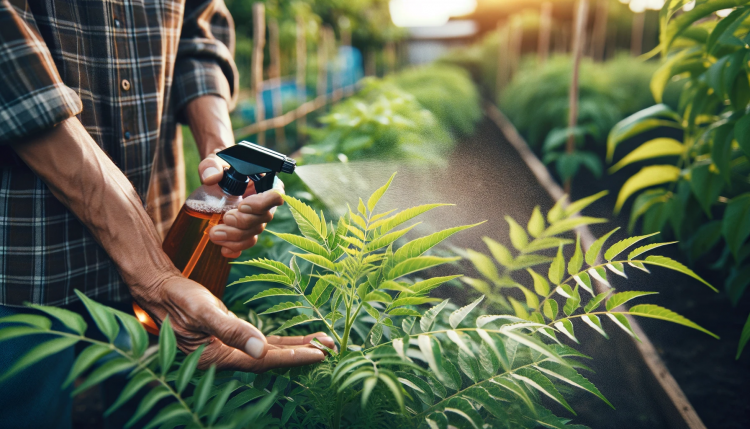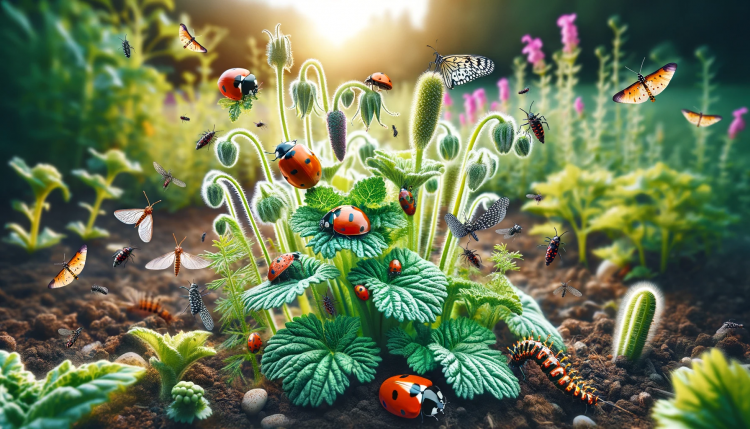
In the world of organic gardening, controlling pests without the use of synthetic chemicals is not just a practice but a philosophy. This guide delves into a variety of organic pest control methods that are effective, eco-friendly, and safe for both your garden and the environment.
Understanding Organic Pest Control
The Philosophy Behind Organic Pest Control
Organic pest control focuses on using natural methods and products to manage pests. It emphasizes the balance of the ecosystem and relies on preventive measures and natural predators rather than chemical interventions.
Preventive Strategies
Cultivating Healthy Soil
- Compost and Organic Matter: Enriching soil with compost improves plant health, reducing susceptibility to pests.
- Soil Testing: Regular testing helps maintain optimal pH and nutrient levels, fostering stronger plants.
Choosing Resistant Varieties
- Disease-Resistant Plants: Opt for plant varieties known for their natural resistance to specific pests and diseases.
Proper Plant Spacing and Crop Rotation
- Adequate Spacing: Proper spacing between plants ensures good air circulation, reducing the risk of fungal diseases.
- Crop Rotation: Rotating crops annually helps break pest life cycles and prevents soil-borne diseases.
Physical and Mechanical Controls
Barriers and Traps
- Row Covers: Floating row covers protect plants from insects while allowing light and water to penetrate.
- Traps: Pheromone traps, sticky traps, and light traps can effectively reduce certain pest populations.
Manual Removal
- Handpicking: Directly removing larger pests like caterpillars and beetles can be effective for small-scale infestations.
Biological Controls
Utilizing Beneficial Insects
- Ladybugs: Natural predators of aphids, mites, and other harmful insects.
- Lacewings: Feed on a variety of pests including aphids, caterpillars, and mealybugs.
Encouraging Predatory Birds and Animals
- Birdhouses and Baths: Attract birds that feed on pests like caterpillars and slugs.
- Creating Habitats for Predators: Maintain areas in your garden to encourage the presence of pest predators like frogs and lizards.
Natural Pesticides and Repellents

Botanical Insecticides
- Neem Oil: An all-purpose insecticide, miticide, and fungicide derived from the neem tree.
- Pyrethrin: Extracted from chrysanthemum flowers, effective against a wide range of insects.
Homemade Organic Sprays
- Garlic or Chili Spray: Deter pests with a homemade spray made from garlic or chili peppers.
- Soap Spray: A mild solution of organic soap and water can control soft-bodied insects like aphids.
Natural Repellents
- Essential Oils: Certain oils like peppermint, eucalyptus, and citronella can repel insects.
- Companion Planting: Plants like marigolds and basil can naturally deter pests when planted alongside vulnerable crops.
Integrated Pest Management (IPM)
Implementing IPM in Organic Gardening
- Monitoring and Identification: Regularly check for pests and correctly identify them to choose the most effective control method.
- Threshold Levels: Determine the level of pest activity that can be tolerated before intervention is needed.
Cultural Practices
- Sanitation: Regularly remove plant debris and diseased plant parts to minimize pest habitats.
- Diverse Planting: A diverse garden ecosystem can naturally regulate pest populations.
Working with Nature

Organic pest control is about understanding and working with nature. By employing a combination of preventive strategies, biological controls, natural pesticides, and IPM, gardeners can effectively manage pests in an eco-friendly manner. Embracing these methods not only protects your garden but also contributes to a healthier environment.




